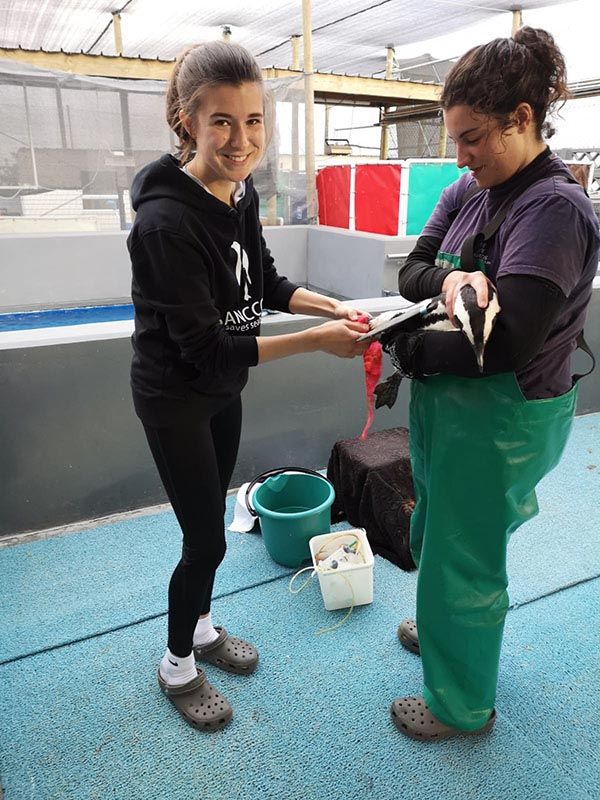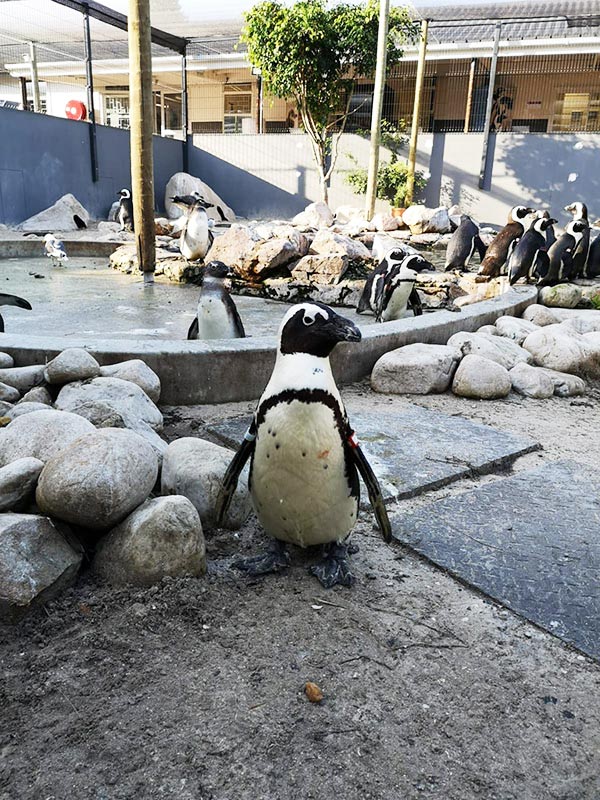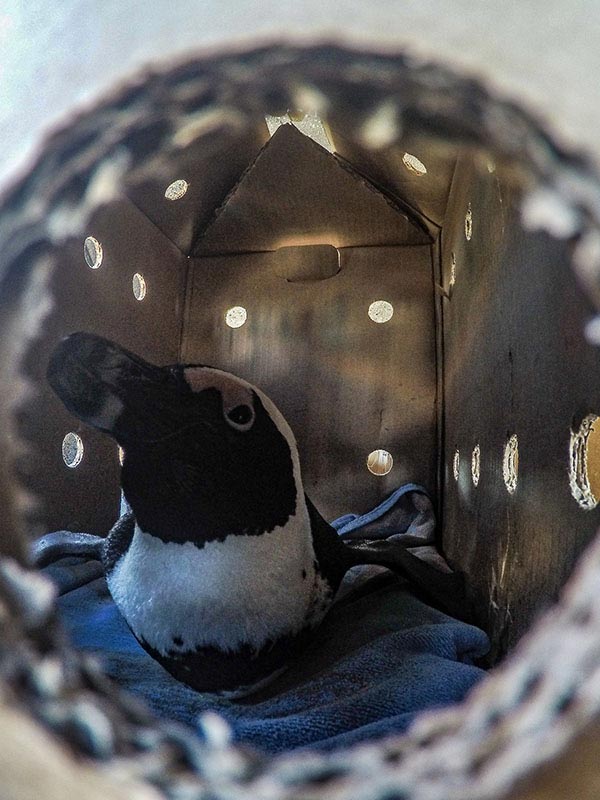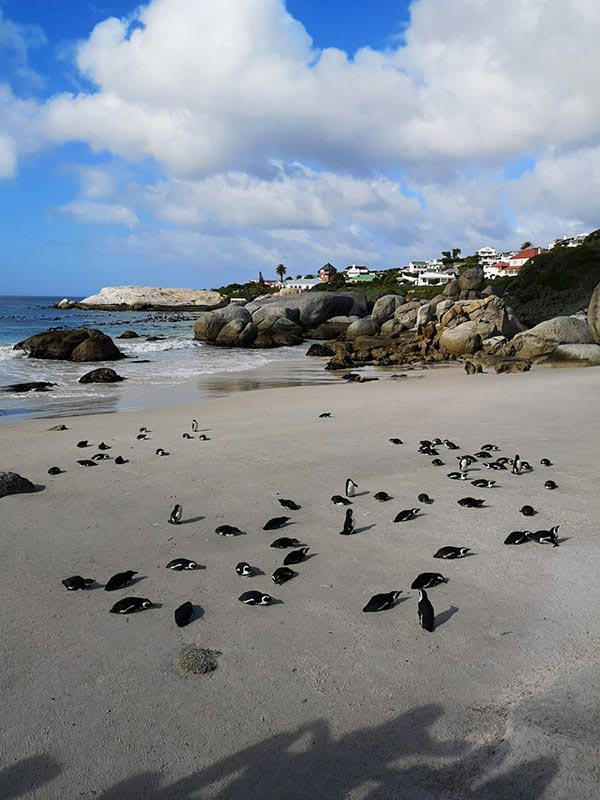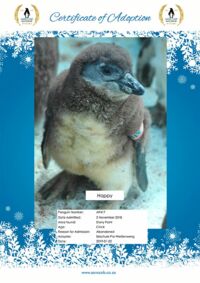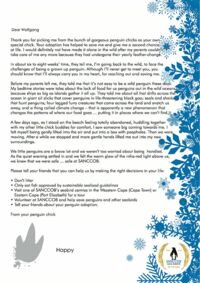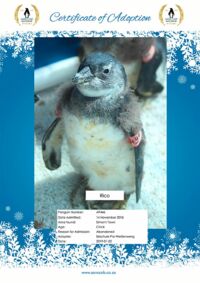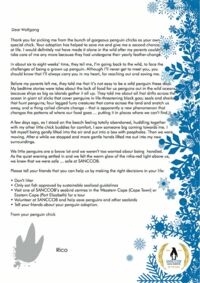Shop & Rental (Ikarus)
+ 43 64 66 517
+ 43 664 32 33 969
info@skiverleih-werfenweng.at
Outdoor & SAMO Shop (Centre)
+ 43 64 66 200 42
Skischule PRO
+ 43 64 66 788
info@ski-pro.at
HELP Penguin BOBO’s FRIENDS!
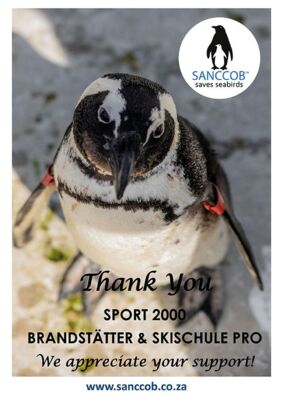
THE AFRICAN PENGUINS NEED OUR HELP, LET'S DONATE AND ADOPT!
DONATIONS FROM PREVIOUS SEASONS
Winter Season 2018/19: Our donation of 1 Euro for every participant of our ski lessons and the voluntary contribution of our customers on-site resulted in the amount of 2.000 Euros. We donated 1.000 Euro to SANCCOB in form of a monetary donation. The remaining amount was used to send one of our ski instructors to SANCCOB to help and learn more about the organization. More Information on this topic below and on our social media channels.
Winter Season 2019/20: Our donation of 1 Euro for every participant of our ski lessons and the voluntary contribution of our customers on-site resulted in the amount of 500 Euros. We donated the entire amount to SANCCOB in form of a monetary donation.
A view behind the scenes of SANCCOB
This summer 2019, Lisa, one of our ski instructors, visited SANCCOB as a part of her studies in veterinary medicine. Below you can read her report:
“In August 2019 I spent some weeks at this great organisation.
Before that, I didn’t really know what to expect and I had a lot of questions:
How big is this organisation? How many people are working there? How many seabirds are being treated at SANCCOB and which kinds of birds? How is the seabird area built? What do I have to expect, when working with penguins?
After a short time, I got answers to my questions.
The first days were very exhausting. Everything was new to me and I had to learn a lot before I could help the SANCCOB team properly.
As it turned out, SANCCOB has a lot of different stations with various jobs, which sometimes are not as fun as others. One job that is very important is cleaning, which happened to be done in each station, to provide a clean environment for the sick seabirds.
After a few days I got taught how to handle penguins. And soon I discovered that this wouldn’t be easy, because those birds are aggressive. They tried to bite me with their sharp beaks, scratch me with their claws, hit me with their flippers and even aim for me while pooing. At least we are prepared for all that with armguards of old neoprene, neoprene gloves, oilskin overalls and safety glasses. Despite all these challenges, I was happy that I could handle the penguins. Although I got some little wounds and bruises. After that I was even more aware that those birds are no pets but wild animals, which are not used to being handled by humans.
SANCCOB is very keen to keep that separation between penguins and humans. They try to keep the handling of the birds as stress-free and seldom as possible for them. SANCCOB does its utmost to administer treatment and medication bound to a feeding, so that there is less handling necessary. We tried to keep the talking to a minimum next to the penguins, so they won’t get used to humans talking. To avoid association of “humans are nice because they feed us”, they do forced-feeding. What this means is that the fish isn’t offered to the penguins but carefully inserted in the beak and oesophagus and then the penguin swallows it naturally. All those things are immensely important for releasing them into the wild again. Humans and African penguins live on narrow space which makes it essential so that they don’t get tame.
African penguins aren’t big, but they are the strongest birds I have ever seen when it comes to wounds and diseases. Every other bird couldn’t cope with all those things, they just have this amazing will to live. That was very fascinating for me. They are fighters, but even though African penguins are tough, they need a little help from us especially when predators like seals and threats like oil spills, plastic waste and less fish in the ocean are making their survival difficult. SANCCOB committed themselves to provide help and I think we all should support that.
The time at SANCCOB opened my eyes and I saw that amazing things are possible when people decide to help.”
Meet Penguin BOBO’s FRIENDS Happy & Rico!
Our adoption of Happy & Rico helps to cover the cost of fish, medication, water and other essentials the birds need to grow strong enough for release back into the wild to live a natural life.
Adopt a penguin or help these animals with your contribution!
ABOUT SANCCOB:
The Southern African Foundation for the Conservation of Coastal Birds (SANCCOB) is a seabird rehabilitation facility, whose objective is to reverse the decline of the endangered African penguin species and other southern African seabirds. Every year, approximately 2,500 injured, oiled or ill seabirds are admitted to SANCCOB for rehabilitation. Additionally, several hundred African penguin chicks, abandoned by their parent birds, are taken to SANCCOB and hand-reared at the Cape Town facility.
After undergoing successful rehabilitation, penguins and seabirds are released back to the wild to increase the wild population of the species and work toward saving the species from extinction.
Before release, birds are implanted with subcutaneous transponders (microchips) and ground-readers installed in the wild, detect penguins walking in and out of the colony. This data retrieved provides valuable insight into the long-term survival of the species, movements between colonies and recruitment of young birds into the breeding population.
SANCCOB works closely with its conservation partners, and local and international researchers on a variety of studies on seabird tracking, parasites, population dynamics, fish availability, diseases, pollution and other aspects of the species.
There are currently around 20,700 breeding pairs of African penguins remaining in the wild and SANCCOB’s rescue and rehabilitation efforts are geared toward bolstering the endangered population. Celebrating 50 years of saving seabirds since established on 1968, SANCCOB has admitted close to 100 000 seabirds to date at its two seabird centres strategically located in the Western and Eastern Cape provinces of South Africa.
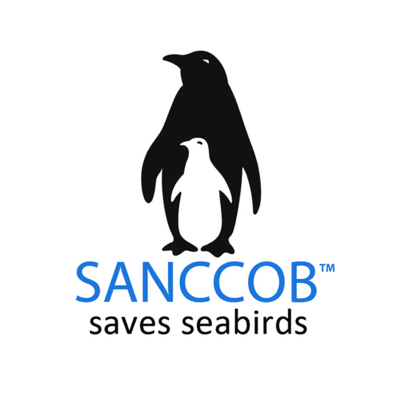
AFRICAN PENGUIN FACTS:
- The African penguin is the only penguin species breeding on the African continent
- There are 28 breeding colonies in Namibia and South Africa
- Current wild population of African penguins is at about 2% of the historic population (at the beginning of the 20th century)
- The African penguin species is listed as Endangered by the International Union for Conservation of Nature (IUCN)
PRESSURES FACED BY AFRICAN PENGUINS GLOBALLY AND LOCALLY:
- Lack of food: Sardine and anchovy constitute the main prey for African penguins in South Africa, and the available sardine biomass in 2016/2017 was one of the lowest recorded in the last three decades.
- Competition with fisheries
- Pollution
- At-sea predation
- Predation by mainland predators
- Disturbance by poachers
- Diseases



